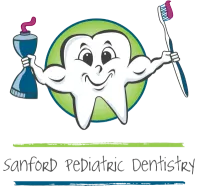Dental Emergencies

Toothache:Clean the area of the affected tooth thoroughly. Rinse the mouth vigorously with warm water or use dental floss to dislodge impacted food or debris. If the pain still exists, contact your child's dentist. DO NOT place aspirin on the gum or on the aching tooth. If the face is swollen apply cold compresses and contact your dentist immediately.
Cut or Bitten Tongue, Lip or Cheek:
Apply ice to bruised areas. If there is bleeding apply firm but gentle pressure with a gauze or cloth. If bleeding does not stop after 15 minutes or it cannot be controlled by simple pressure, take the child to the hospital emergency room.
Knocked Out Permanent Tooth:
Find the tooth. Handle the tooth by the crown, not the root portion. You may rinse the tooth but DO NOT clean or handle the tooth unnecessarily. Inspect the tooth for fractures. If it is sound, try to reinsert it in the socket. Have the patient hold the tooth in place by biting on a gauze. If you cannot reinsert the tooth, transport the tooth in a cup containing the patient’s saliva or milk. If the patient is old enough, the tooth may also be carried in the patient’s mouth. The patient must see a dentist IMMEDIATELY! Time is a critical factor in saving the tooth.
Post-Operative Care
Care of the Mouth after Local Anesthetic
- If the procedure was in the lower jaw the tongue, teeth, lip and surrounding tissue will be numb or asleep.
- If the procedure was in the upper jaw the teeth, lip and surrounding tissue will be numb or asleep.
- Often, children do not understand the effects of local anesthesia, and may chew, scratch, suck, or play with the numb lip, tongue, or cheek. These actions can cause minor irritations or they can be severe enough to cause swelling and abrasions to the tissue.
- Monitor your child closely for approximately two hours following the appointment. It is often wise to keep your child on a liquid or soft diet until the anesthetic has worn off.
Care of the Mouth after Trauma
- Please keep the traumatized area as-clean-as possible.
- Watch for darkening of traumatized teeth. This could be an indication of a dying nerve (pulp).
- If the swelling should re-occur, our office needs to see the patient as-soon-as possible. Ice should be administered during the first 24 hours to keep the swelling to a minimum.
- Watch for infection (gum boils) in the area of trauma. If infection is noticed - call the office so your child can be seen as-soon-as possible.
- Maintain a soft diet for two to three days, or until your child feels comfortable eating normally again.
- Avoid sweets or foods that are extremely hot or cold.
- If antibiotics or pain medicines are prescribed, be sure to follow the prescription as directed.
Please do not hesitate to call the office if there are any questions.
Care of the Mouth after Extractions
- Do not scratch , chew, suck, or rub the lips, tongue, or cheek while they feel numb or asleep. The child should be watched closely so he/she does not injure his/her lip, tongue, or cheek before the anesthesia wears off.
- Do not rinse the mouth for several hours.
- Do not spit excessively.
- Do not drink a carbonated beverage (Coke, Sprite, etc.) for the remainder of the day.
- Do not drink through a straw.
- Keep fingers and tongue away from the extraction area.
- Maintain a soft diet for a day or two, or until your child feels comfortable eating normally again.
- Avoid strenuous exercise or physical activity for several hours after the extraction.
Bleeding
Some bleeding is to be expected. If unusual or sustained bleeding occurs, place cotton gauze firmly over the extraction area and bite down or hold in place for fifteen minutes. This can also be accomplished with a tea bag. Repeat if necessary.
Pain
For discomfort use Children's Tylenol, Advil, or Motrin as directed for the age of the child. If a medicine was prescribed, then follow the directions on the bottle. Please do not hesitate to contact the office if there are any questions.
Care of Sealants
By forming a thin covering over the pits and fissures, sealants keep out plaque and food, thus decreasing the risk of decay. Since, the covering is only over the biting surface of the tooth, areas on the side and between teeth cannot be coated with the sealant. Good oral hygiene and nutrition are still very important in preventing decay next to these sealants or in areas unable to be covered.
Your child should refrain from eating ice or hard candy, which tend to fracture the sealant. Regular dental appointments are recommended in order for your child's dentist to be certain the sealants remain in place.
The American Dental Association recognizes that sealants can play an important role in the prevention of tooth decay. When properly applied and maintained, they can successfully protect the chewing surfaces of your child's teeth. A total prevention program includes regular visits to the dentist, the use of fluoride, daily brushing and flossing, and limiting the number of times sugar-rich foods are eaten. If these measures are followed and sealants are used on the child's teeth, the risk of decay can be reduced or may even be eliminated!
Oral Discomfort after a Cleaning
A thorough cleaning unavoidably produces some bleeding and swelling and may cause some tenderness or discomfort. This is not due to a "rough cleaning" but, to tender and inflamed gums from insufficient oral hygiene. We recommend the following for 2-3 days after cleaning was performed if your child has discomfort:
- A warm salt water rinse 2 - 3 times per day (1 teaspoon of salt in 1 cup of warm water)
- For discomfort use Children's Tylenol, Advil, or Motrin as directed for the age of the child.
Please do not hesitate to contact the office if the discomfort persists for more than 2 days or if there are any questions.
